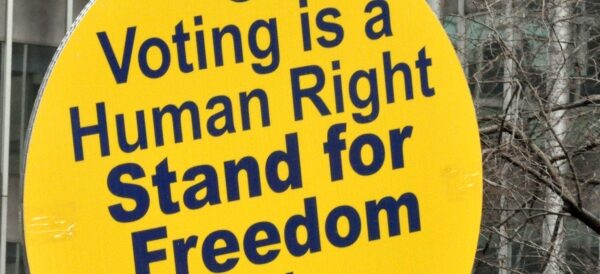Under these rules, once individuals have completed their sentence in the state of Florida they must wait 5-7 years, depending on their offense, before can request to restore their rights.
The Clemency Board then reviews the applications one by one and decides if the applicant meets the qualifications to have their rights restored.
The Clemency Board meets today in Tallahassee for their last meeting of the year and the last meeting of Governor Scott’s first term. Yet, we see no hope for the over 1.5 million Floridians who have lost their right to vote due to a past felony conviction.
In March of this year, we took the problem of disenfranchisement in Florida to the
United Nations Human Rights Committee in Geneva. We made a strong case that the disenfranchisement of over 5.85 million U.S. citizens and over 1.5 million Floridians is a direct violation of the International Covenant on Civil and Political Rights. The U.N. Human Rights Committee agreed it is a human rights violation and called upon the United States to lift the ban on voting.
We came home with renewed energy to push for changes in Florida. We have gathered close to
6,000 signatures on a petition calling upon the Governor and his Cabinet to make it easier for returning citizens to vote. As advocates, we have worked passionately to change this draconian policy. We have had held rallies in Tallahassee and in Tampa. We have issued numerous press releases and op-eds that have brought international attention to Florida’s disenfranchisement policy. But despite our efforts, there is still no change in Florida’s Clemency Rules.
We have had enough. Today, on this day that commemorates human rights all over the world, we are in Tallahassee at the Clemency Board meeting seeking justice for the disenfranchised. Governor Rick Scott, Attorney General Pam Bondi, Chief Financial Officer Jeff Atwater, and Commissioner of Agriculture Adam Putnam: restore the right to vote for our fellow Floridians.
Everyone deserves a second chance.

